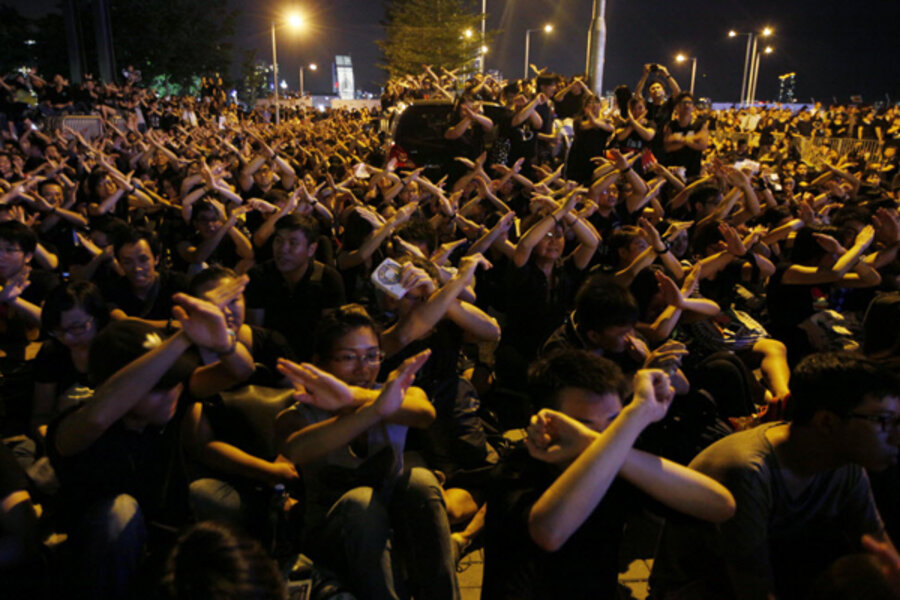Following protests, Hong Kong backs down on Chinese patriotism classes
Loading...
| Hong Kong
Hong Kong officials backed down Saturday on plans to make students take Chinese patriotism classes following a week of protests in the former British colony sparked by fears of pro-Beijing "brainwashing."
The semiautonomous Chinese city's leader, Leung Chun-ying, said it would be up to schools to decide whether to hold the classes. They were to have become a mandatory subject in 2015 after a three-year voluntary period.
Public anger over the classes has been growing for months. Many feared they were a ploy by Beijing authorities to indoctrinate the city's young into unquestioning support of China's Communist Party, though Leung and other senior officials denied it.
China regained control of Hong Kong from Britain in 1997 after more than a century of colonial rule, but the city has been allowed to retain a high degree of autonomy, a separate legal system and civil liberties not seen in mainland China, such as freedom of speech.
Leung's retreat follows a week of protests by thousands in front of government headquarters coinciding with the start of a new school year. Organizers said 120,000 took part on Friday evening, though police put the number at 36,000, local news reports said.
The decision comes a day before elections for the city's legislature. Sunday's vote will be the first time the public will be able to choose more than half the seats. Deepening opposition to the education plans could have undermined support for pro-Beijing candidates.
The protesters worried the new subject would be an attempt to indoctrinate the city's young with nationalist education classes similar to ones used in schools all over China to inculcate support for the Communist government.
The fears rose after a pro-Beijing education group published a pamphlet earlier this year extolling the virtues of one-party rule. The government stressed that the booklet, called "The China Model," was not part of designated teaching material.
According to curriculum guidelines, students would learn in the classes about China's political leaders, the contributions they have made and the difficulties and challenges they face. They would also learn how to "speak cautiously," practice self-discipline and get along well with others in a rational and respectful way.
The controversy is the latest sign of increasing discomfort with mainland China's growing influence on the city. Hong Kongers have also been perturbed about stunted democratic development and an influx of wealthy mainlanders buying up property and driving up prices.
Follow Kelvin Chan on Twitter at twitter.com/chanman







